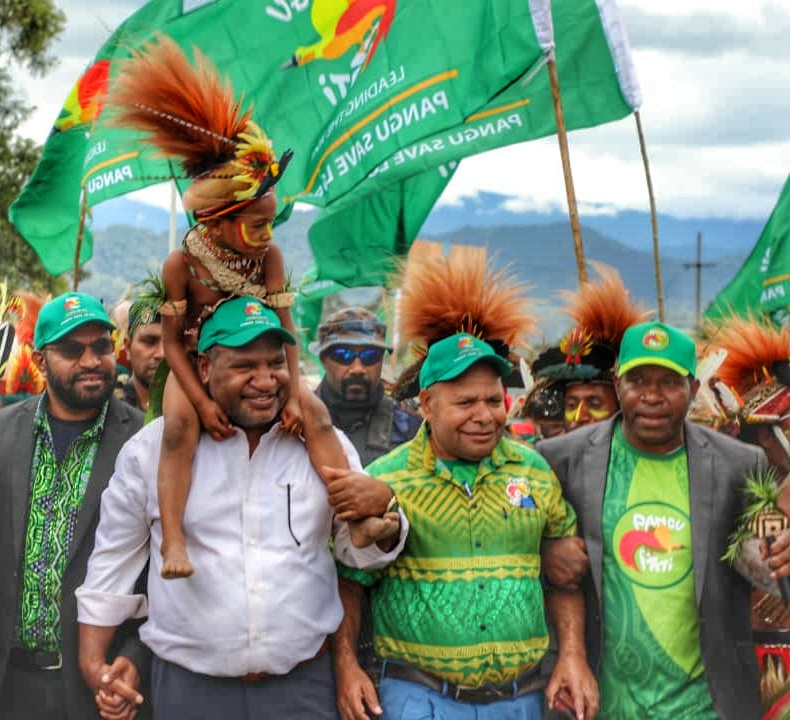Papua New Guinea Union Party (Pangu Pati), officially known as the Papua na Niugini Yunion Pati, is a nationalist and developmentalist political party in Papua New Guinea. Founded in 1967, it is the oldest political party in the country and has held all levels of government throughout its history. As of 2023, it is the largest party in the National Parliament.
History
The Pangu Pati was established on June 13, 1967, in order to contest the elections of 1968 (Papua and New Guinea). Its founders included Michael Somare, Albert Maori Kiki, and Barry Holloway. The party’s name, “Pangu”, is a Motu word meaning “drum”, which symbolizes unity and communication.
Somare served as Prime Minister of Papua New Guinea as the leader of the Pangu Party from 1972 to 1980 and from 1982 to 1985. The party has since been led by a number of other figures, including Paias Wingti, Chris Haiveta, and Sam Basil.
Ideology
The Pangu Pati is generally considered to be a centre-left party. It supports a mixed economy, with a focus on social development and poverty reduction. The party also advocates for Papuan nationalism and self-determination.
Pangu Pati: A Historical Voyage Through Papua New Guinea’s Politics
The Pangu Pati, Papua New Guinea’s oldest political party, boasts a rich and complex history intertwined with the nation’s own journey towards independence and development. Here’s a glimpse into its significant milestones:
1967: Genesis of a Dream
Amidst growing aspirations for self-determination, the Pangu Pati emerged in 1967, founded by luminaries like Michael Somare, Albert Maori Kiki, and Barry Holloway. The party’s name, “Pangu,” resonated deeply, symbolizing the unifying power of the drums in traditional Papua New Guinean culture.
Early Struggles and Triumphs (1968-1985)
Despite facing hurdles in its initial years, Pangu gained momentum, advocating for self-governance and economic development. They played a crucial role in Papua New Guinea’s path to independence in 1975, with Somare becoming the first Prime Minister. The party held power during critical periods, shaping policies on resource management, land rights, and national identity.
Navigating Transitions and Internal Disputes (1980s-2000s)
The Pangu Pati witnessed periods of both leadership changes and internal conflicts. While retaining a significant presence in Papua New Guinean politics, the party grappled with splintering factions and shifts in power.
A Resurgence and Leading the Nation (2010s-Present)
Following years of rebuilding, the Pangu Pati experienced a resurgence in the 2012 and 2017 elections. In 2022, it emerged as the largest party, forming a coalition government with James Marape at the helm. Currently, the party drives national policies focused on economic growth, infrastructure development, and social progress.
Beyond Milestones: Key Imprints on Papua New Guinea
The Pangu Pati’s legacy extends beyond electoral victories. It has left its mark on:
- Nationalism and Identity: Advocating for Papuan nationalism and contributing to shaping the nation’s identity.
- Decentralization and Empowerment: Championing policies that empower local communities and promote decentralization.
- Development and Governance: Pushing for policies aimed at sustainable economic growth and transparent governance.
Looking Ahead: Navigating the Future
As Papua New Guinea continues to evolve, the Pangu Pati faces fresh challenges and opportunities. Its ability to adapt, stay true to its core values, and respond to the aspirations of the people will determine its future course and impact on the nation’s destiny.
